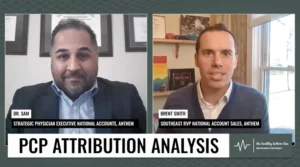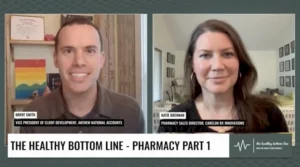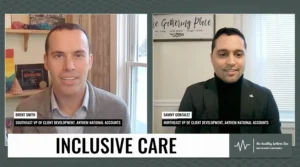Are Oil Prices Going to Keep Rising?
Daniel Hynes, Senior Commodities Strategist at Australia & New Zealand Banking Group Ltd., discusses the outlook for oil, which climbed back above $76 a barrel after OPEC+ ended days of talks without reaching a deal to bring back more halted output next month.
Host: What are you expecting in terms of prices, given what we’re seeing right now happen inside the cartel?
Hynes: We can’t argue with how the market is viewing things at the moment. Certainly their view that the breakdown in talks will see current production limits being maintained rather than increasing and then obviously coming at a fairly crucial time with summer driving season in the US and Europe really driving demand higher. So, you know, with that, I do expect prices to continue to push higher in the shorter term. But, you know, I’m concerned about what I suppose the potential breakdown of unity within OPEC could mean for supply and thus the oil market over the medium term. Certainly UAE demand for higher baseline production numbers to allow it to increase output, I suppose, does raise the risk that that unity, that compliance that the group has maintained could break down. I think that has been a big part of why prices have been relatively stable, even though we’ve seen a strong rise over the past 12 months or so. And could shape the belief within the market that compliance will continue.
Host: So could the relationship worsen as badly as it did last year during the price war?
Hynes: Look, it’s certainly got the potential, but I think for the moment, I could still see some path out of it, at least in the short term. Yeah, you could see that proposed sort of 400,000 barrel a day increase allowed for the rest of this year. And then the issue around the pushing out of the expiry date of the supply agreement to the end of next year, potentially tackled at a later date. But, yeah, look, I think we’ve had some very strong, strong sort of compliance over the past 18 months or two years really within this group. And that’s always very hard to maintain when you get so, so many differing sort of, you know, producers who have got obviously, a lot of drivers dictating what they want to do. So, yeah, I don’t think it’s going to get to the point that we saw recently. But it could certainly it could certainly allow that perception from the market to wane around strong compliance.
Host: We all the supply gap change the picture when it comes to US shale, because, you know, mostly they’ve been on the sidelines waiting for an outcome from OPEC.
Hynes: Yeah, I think that’s an important factor to take into consideration. I think Saudi Arabia certainly has been comforted by the relatively cautious outlook that US shale producers have taken so far. Certainly drilling activity has picked up, but output has remained relatively subdued. And I think with those producers now looking at returns rather than pure volume growth, I think the outlook of a strong pick up being in the US shale is relatively low as well. So that does give some comfort to OPEC and Saudi Arabia in particular, that they will be able to increase output over the medium term without losing too much, too much market share.
Host: Dan, of course, it has been a torrid first half for most of the commodities complex. Taking a look at the rest of the calendar year, do you expect these to talk about a supercycle still be ignited?
Hynes: Oh, look, I still think the fundamentals are very strong. I mean, we’re certainly coming into a slightly softer period for fall demand. Traditionally the July, August period has seen a growth in demand slow down, particularly in China. But that that pent up level of demand. We’ve seen coming out of the epidemic. I think still has plenty, plenty to go. And then you have, obviously, a lot of the supply side issues across many commodity markets exacerbating that tightness. So I think the foundations, the fundamentals are still very positive. And I do think over the next 12 to 18 months, we continue to see very strong price increases. But at the moment, certainly some softness. We’ll see prices probably just trade sideways.
—
Follow us on social media for the latest updates in B2B!
Twitter – @MarketScale
Facebook – facebook.com/marketscale
LinkedIn – linkedin.com/company/marketscale









